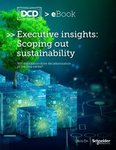The headlines last week were cognitive dissonance at its finest. On Monday, all the papers and websites briefly led with the climate emergency. A new IPCC report declared "Code Red for humanity." As if we didn't know we were already in trouble, with wildfires sweeping the world, we were told that changes to the earth's atmosphere irreversible changes that will last for millennia. Species are rapidly going extinct and, unless, we change our ways, one of those will be humanity.
Then on Tuesday, the news clicked back to fears that - because of Covid quarantine rules - people couldn't fly off on their summer holidays and business trips.
It was as if the climate emergency had just gone away. As if those international flights had no consequences. As if everyone has a fundamental human right to board a plane and burn more some carbon in a couple of hours than the majority of the world's population burn in a whole year, and hang the consequences!
Your flights cost the earth
Aviation makes up something like 2.4 percent of CO2 emissions, but something like five percent of global warming (because the contrails are high in the atmosphere and contain other gases). That sounds small, but your flights count because only about three percent of the world fly regularly.
It's very easy to check the carbon footprint of your travel. A short European return flight makes maybe half a ton of greenhouse gas, a return from New York to San Francisco is a ton. Flying from London to the West Coast of the US is 2.5 tons.
To put these in context, your transatlantic return flight, at 2.5 tons, will add more greenhouse gas to the atmosphere than the average Brazilian adds in an entire year. Fly there twice and that's more than the carbon footprint of the average Portuguese, Swiss, or Swedish citizen.
Look at it another way. In your annual carbon budget, those flights stick out like a sore thumb. Your return flight to California creates nearly as much carbon as heating the average house for a year ((2.7 tons). Car mileage varies, but on UK figures, you could drive a car 15,000 miles for 2.5 tons of carbon. A vegetarian's annual food has a footprint of about 2.5 tons (for a carnivore it's 3.5 tons or more).
I stopped personal flights then. I appreciate I was lucky in not having parents or children living abroad.
But the last time I flew for pleasure was in 2016.
But it's for business!
Of course, since then I have flown several times... for business. It's tempting to say this is ok; to cross business travel off your personal footprint and say it's the responsibility of your employer (some carbon calculators do that). But that doesn't wash for me.
In March 2019, I realized I had taken two return trips across the Atlantic and flown to Sweden - all in the same month. This came to 5.5 tons of CO2, which is coincidentally the average footprint per person in the UK for the entire year, and more than the average footprint for the world (4.79 tons)
That's clearly not sustainable, so since 2019, I've not flown, only leaving the UK by train. I know that colleagues have taken many of those trips in my place, so the world is probably no better off, but I feel better. I've made arguments for not flying, but I saw that face-to-face events and the perks (or frustrations) of travel were seen as the industry's basic norms.
Along came Covid
Then in 2020, the world had a sudden realization that - when foreign trips weren't possible - it was suddenly perfectly feasible to do business over electronic communications. For some reason, this surprised many people in the tech industry, who'd been selling this idea for some time.
Everyone replaced business trips with virtual meetings during the pandemic. The UK's Department for Transport (DfT) found that 93 percent of firms replaced some or all of their trips with virtual meetings: I don't know what the other seven percent did. Half of businesses found this was perfectly fine, and only a quarter didn't. Polls show the majority of business travelers found they could do just as well without the plane rides. Forty percent say they will be doing fewer trips in future.
But not everyone is going to learn from the experience. Some companies seem to be keen to get back in the air, whatever the cost.
#JustUseTeams
Take Microsoft. Despite being the creator of Teams, one of the premier tools for remote meetings, it has a shocking record for business travel - at least, before the pandemic. The 378,000 tons of CO2 its business flights emitted in a year add up to more than the entire nations of Burundi or Samoa. The company has its own check-in lane at Seattle airport,
Microsoft says it will be carbon negative by 2030, but its story on travel emissions is weak. It plans to offset the carbon - an approach which is well meaning but seriously flawed - and is investing in sustainable jet fuels - an idiotic fantasy from an industry that simply cannot survive without fossil fuels.
Even without the problem that biofuels still release carbon, the air industry's target is only for two percent penetration of biofuels by 2025. This target, like all previous ones, will be missed, and even if it was hit, it would have no impact at all on the world's total emissions in the necessary timescale.
There's a campaign, JustUseTeams, to get Microsoft to change its ways. And let's be clear, Microsoft is just a convenient target, and everyone else needs to take note.
What about us?
You may be wondering about Datacenter Dynamics. A large part of our business has been based on trade shows and training, events where business people travel to meet each other and learn. These are things that need to keep happening during pandemics and despite the climate emergency. But we've learnt a lot during the last 18 months.
It's been quite possible to share information, and learn about the business of data centers without getting on a plane. Our text and video content has been ramping up. In many ways, we've enjoyed greater engagement with our community, Who would have expected that?
But as (let's hope) the pandemic comes under control, there's a move to get events running again. The biggest shows have been trying to win back lost business, with Mobile World Congress (MWC) re-opening in Barcelona. The colossal CES jamboree is planning an all-vaccinated show in Las Vegas in January 2022.
We are being a bit more experimental.
This autumn we're starting to have face-to-face events, alongside the successful online ones. But after the changes of the pandemic, we're feeling our way, to gauge how much meeting up, and how much travel the industry wants now.
Our DCD>Connect meetings will be invitation-only. Whether or not you are invited, let us know your feelings.
We've been grounded for a year, and that's given us time to think. As we emerge from that pause, we now have more proof than ever that we have to act in the interest of keeping this planet habitable for future generations of our species.
Data center people are extraordinarily inventive: let's give this issue our best, most considered response.




